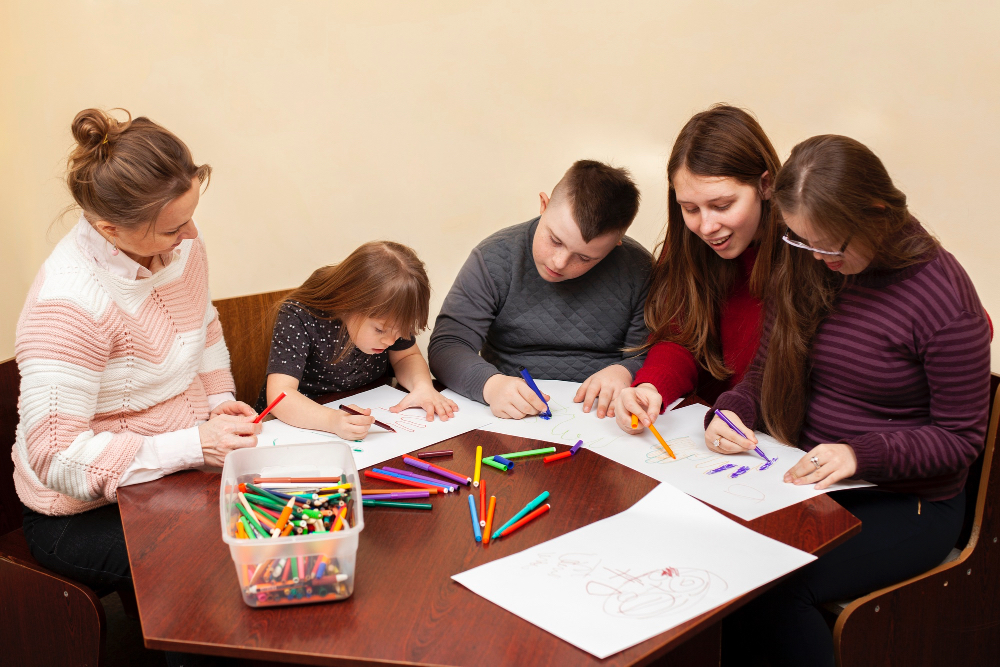In the realm of education, Social Emotional Learning (SEL) has emerged as a crucial component, addressing students’ emotional, social, and cognitive development. As we delve deeper into the 21st century, it’s clear that academic achievement alone isn’t enough; students also need skills to manage their emotions, relate positively with others, and make responsible decisions. Thankfully, there are a plethora of tools designed to foster SEL in students. In this blog post, we’ll explore some of the standout tools for social emotional learning.
What is Social Emotional Learning (SEL)?
Before we jump into the tools, it’s essential to have a clear understanding of SEL. Social Emotional Learning involves acquiring and applying the skills, attitudes, and behaviors to:
- Understand and manage emotions.
- Set and achieve positive goals.
- Feel and show empathy for others.
- Establish and maintain positive relationships.
- Make responsible decisions.
SEL is interwoven with academic learning, aiding students in navigating the challenges of the academic environment and helping them succeed beyond school.
Top Tools for Social Emotional Learning
- CASEL’s Guide to Effective Social and Emotional Learning Programs – The Collaborative for Academic, Social, and Emotional Learning (CASEL) is a trusted voice in the SEL community. Their guide lists and reviews numerous SEL programs, making it easier for educators to choose the most suitable one for their students.
- Sanford Harmony – Designed for Pre-K to 6th-grade students, Sanford Harmony uses storybooks, songs, and games to teach children about empathy, critical thinking, communication, and problem-solving. The program focuses on promoting positive peer interactions and enhancing students’ understanding of diversity.
- Second Step – Catering to early learning through 8th grade, Second Step uses lessons, videos, and activities to teach students essential life skills, ranging from managing emotions to understanding complex social situations.
- 7 Mindsets – This comprehensive program offers a full K-12 curriculum. By employing videos, lesson plans, and interactive activities, it focuses on developing a positive mindset, helping students to understand and handle their emotions, make meaningful connections, and set actionable goals.
- RULER – Developed by the Yale Center for Emotional Intelligence, RULER stands for Recognizing, Understanding, Labeling, Expressing, and Regulating emotions. It’s not just a program but an entire approach to SEL that integrates emotional intelligence into the fabric of schools.
- MindUP – Rooted in neuroscience, MindUP is designed for Pre-K to 8th-grade students. The program focuses on mindfulness and positive psychology to reduce stress, improve concentration, and foster a positive school environment.
- PATHS (Promoting Alternative Thinking Strategies) – Aimed at elementary school children, PATHS teaches self-control, emotional understanding, positive self-esteem, relationships, and interpersonal problem-solving skills. It is a well-researched program that integrates SEL into the core curriculum.
- Leader in Me – This whole-school transformation model, based on Stephen Covey’s 7 Habits of Highly Effective People, empowers students with leadership and life skills. It encourages students to take responsibility, plan ahead, and work well with others.
Why Should Schools Integrate SEL Tools?
- Promotes Positive Behavior: SEL programs are known to decrease disruptive behaviors in classrooms, making it easier for teachers to teach and students to learn.
- Supports Academic Achievement: Students with solid SEL skills tend to perform better academically. They can handle stress, focus on their studies, and are better equipped to navigate complex social dynamics.
- Prepares Students for the Future: In today’s interconnected world, having strong social and emotional skills is crucial. Whether it’s collaborating in a multicultural team or understanding a client’s needs, SEL prepares students for the challenges of the 21st century.
Conclusion
The significance of Social Emotional Learning in our current educational landscape cannot be understated. With the challenges of the modern world, students need more than just academic knowledge. They need the skills to understand themselves, empathize with others, and make responsible decisions.
Thankfully, educators and schools have an arsenal of tools at their disposal to integrate SEL into the curriculum seamlessly. By leveraging these tools, they can ensure that students are not only academically proficient but also emotionally and socially competent.
For schools and educators looking to embark on the SEL journey, the tools mentioned above offer a great starting point. Dive deep, explore, and choose what resonates best with your students. Remember, every child deserves a holistic education – one that prepares them for the challenges of both the heart and the mind.


